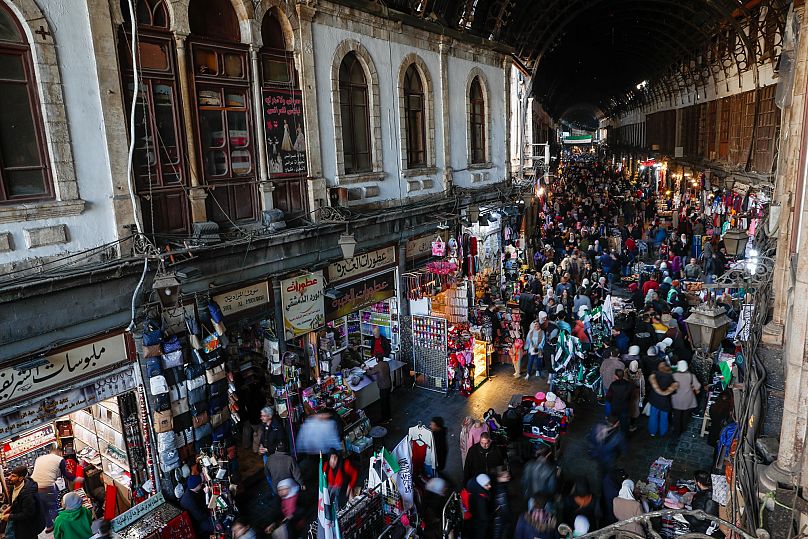Since long-time authoritarian leader Bashar al-Assad was ousted in December countries have started restoring ties with Damascus, with some lifting sanctions in a bid to kickstart the economy.
Syria will need "substantial international" support for its efforts to rehabilitate the economy, meet urgent humanitarian needs and rebuild essential institutions and infrastructure, the International Monetary Fund (IMF) said on Tuesday.
Since interim President Ahmad al-Sharaa led an insurgency that ousted the authoritarian leader Bashar al-Assad in December, countries have gradually begun restoring ties with Syria, with some lifting sanctions in a bid to kickstart the economy.
During a five-day visit by the IMF in early June, the first to Syria by the 191-country lending organisation since 2009, its team met with officials from the public and private sectors, notably the finance minister and central bank governor.
"Syria faces enormous challenges following years of conflict that caused immense human suffering and reduced its economy to a fraction of its former size," the IMF said.
"While the years of conflict and displacement have weakened administrative capacity, staff at the finance ministry and central bank demonstrated strong commitment and solid understanding."
Around 6 million people are estimated to have fled Syria during more than a decade of civil war and the United Nations estimates that 90% of those who stayed lived in poverty and relied on humanitarian aid to survive.
Half a million people were killed in the conflict.
Damascus now anticipates investments and business projects with Qatar, Turkey, Saudi Arabia and others, as they re-establish flight paths and hold high-level political and economic meetings.
US President Donald Trump said that Washington will lift decades-long sanctions against Syria, but it is unclear how long that process could take.
The European Union and the United Kingdom have also eased some restrictions.
Meanwhile, oil-rich nations Saudi Arabia and Qatar paid of Syria's debt to the World Bank, valued at nearly $15 billion (€13 billion).
The IMF said it is developing a roadmap for Syria's policy and capacity building priorities for key economic institutions, including the finance ministry, central bank and statistics agency.
But Syria has a laundry list of reforms it must undertake, including improving its tax collection system, making sure its national budget can pay public sector salaries and basic healthcare and education, empowering the central bank to take measures to bring back confidence to the local currency and rehabilitate its outdated and battered banking system in line with international standards.
In 2017, the United Nations estimated that rebuilding Syria would cost about $250 billion (€218 billion).
Since al-Assad was overthrown at the end of last year, some experts say that number could be as high as $400 billion (€350 billion).












